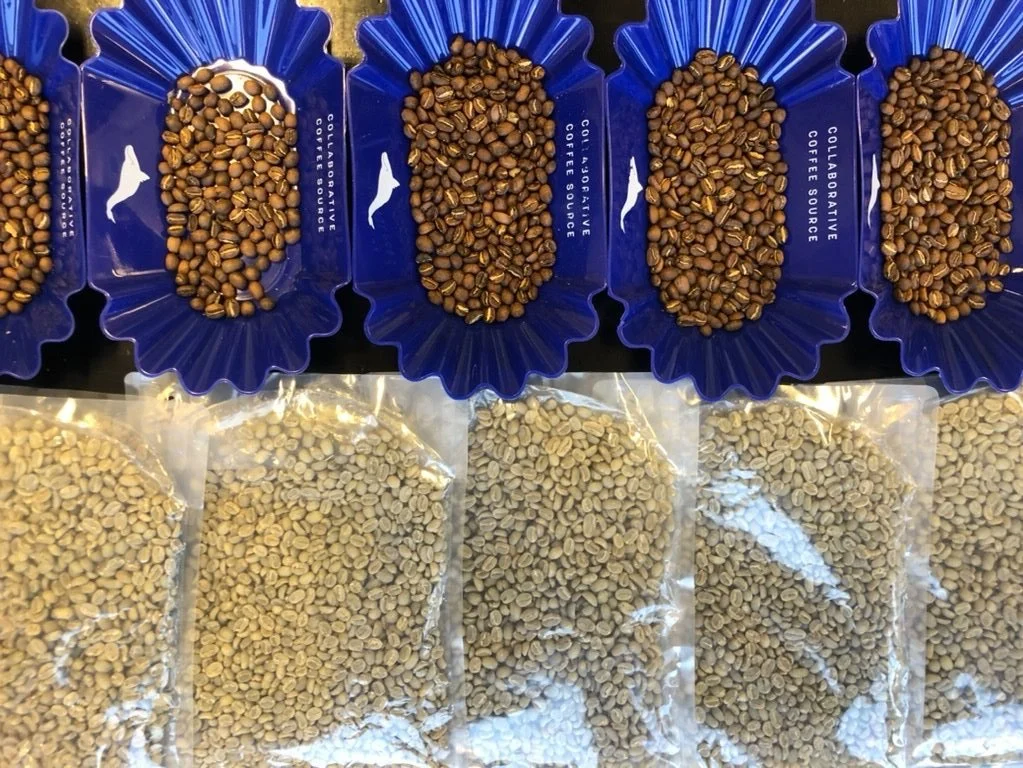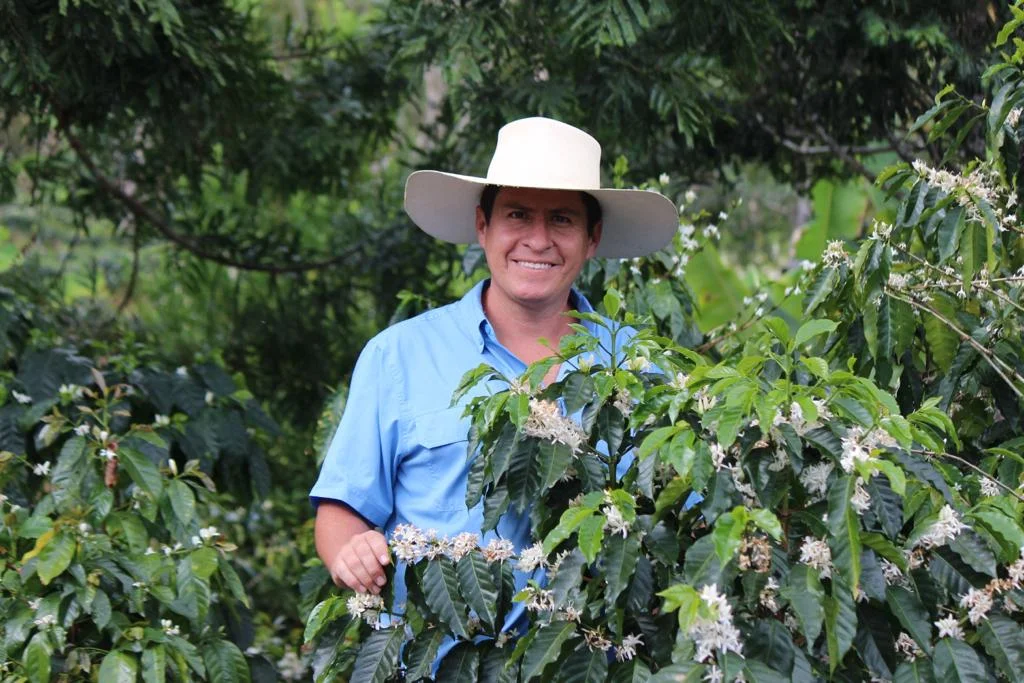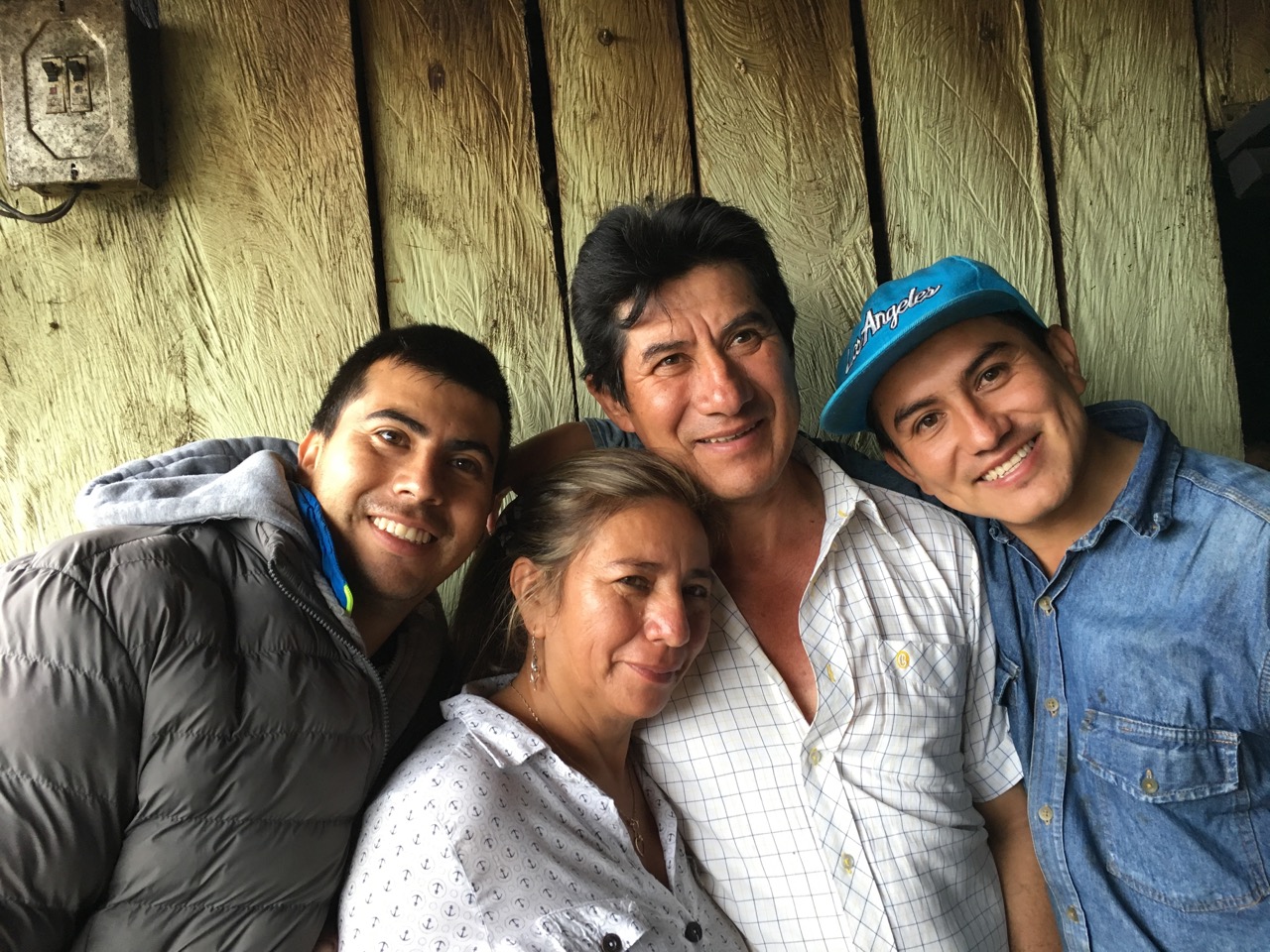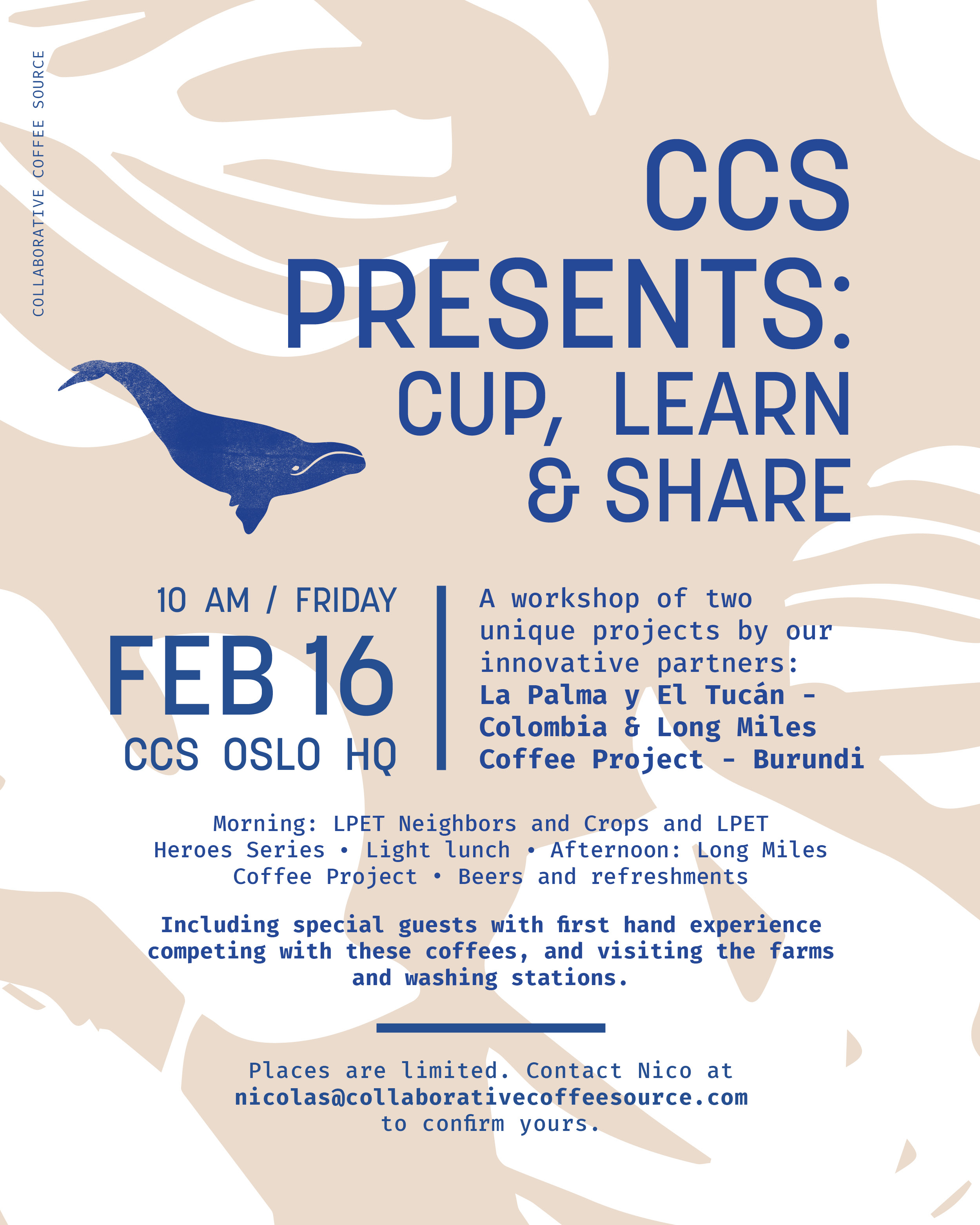Dear CCS,
Thank you for this opportunity to tell you a little of my life and my beginnings with coffee.
In 1982 my parents separated, and I had to take care of my mother and my two younger siblings. In 1984 I married Jose Vianey Erazo, and together we brought into the world our three children, Andrea, Diego and Daniel.
My husband and I began our own business with the few resources we had at the time. We began with a small hardware business in the town of El Tigre, in the department of Putomayo, and, thanks to God, we were able to buy a piece of land and build a house. With that home, our business and our children, we were so happy. We had realized our dreams, and we thought we would live there forever.
Sadly, it was not to be. Suddenly, there was a great rush to grow illicit crops in our region (such as coca, the raw material for cocaine), those that have done such damage to my country. With those crops came the guerrillas and they took control of our area with the help of “milicianos” (guerrilla collaborators). It was a terrible time, people were killed daily, and for unjust reasons. There was no help from the government or military. They viewed anyone who lived in a guerrilla controlled area as guerrillas, even though most of us were merely hard working people living our lives, running businesses, raising families.
We lived as peacefully as we could, we didn’t put ourselves in trouble’s way and we dedicated ourselves to caring for our children and running our business. That was, until 1999. That was the year the paramilitaries arrived. These are mercenary armies created to combat the guerrillas, sometimes financed by narco-traffickers, sometimes financed by the government. One night they arrived in the early hours of the morning and took control of the town. That night they murdered 32 people in cold blood and without discrimination. In the following months many more people disappeared, families were left destroyed, mothers became widows, children were orphaned.
We thank God nothing happened to us, or that at least we suffered no physical loss. But our hearts were broken and our sense of security was destroyed. We lost so many friends. It was a an era of such great sadness, one that marked our lives.
We didn’t know what to do or where to go. We didn’t want to abandon everything we had achieved, our hard work, our life, but the paramilitaries threatened to return to kill all those who remained in the village, so we left. We stayed with my brother in the nieghboring village called La Hormiga, but it was not a safe place for our children. So, we gathered all our resources and bought a small plot of land in Pitalito, Huila and built a house. There was no mention of violence in that region. Our children could study in good schools. We we were happy to be safe.
However my husband and I couldn’t find jobs. We never received a good education which made it difficult, and the cost of living in that city was so high. We had an opportunity to open another hardware store in a town called Llorente, in the department of Nariño. It was a town caught between guerrillas, paramilitaries and narco-traffickers. We did not want to return to that violence, but running a hardware store was all we knew how to do. We made the difficult decision to leave our children alone in Pitalito, where they would be safe and could finish high school, and Jose and I moved to Llorente.
Our business was successful. We had been very responsible towards our suppliers in the hardware business in Putomayo, and all of them opened their doors when we decided to start again. In a short period of time we were making a profit and our economic situation was once again stable.
We were unhappy that our children lived alone. We only saw them once every six months when they could take a vacation. However it was worth the sacrifice. With the help of God, Andrea and Daniel finished high school. Andrea began studying a degree in accounting at the local university, and Daniel soon followed to study dentistry.
Sadly the security situation in Llorente deteriorated. Armed groups imposed a nighttime curfew, and to ignore the curfew was to be killed. We lived like hostages in our own home. We opened the hardware store at 6am, and closed at 6pm, then we locked ourselves inside. Violence took over the town and the war for power between different armed groups gave no respite. We had no option but to stay, it was the only way we could afford to keep our children at university. That was, until the day the paramilitaries killed my cousin.
We never learned why he was killed, because our family never got involved in the war or violence, but we were not surprised. The paramilitary contacted my husband and told him to come and pick up the truck my cousin had been driving, which belonged to us. When my husband arrived, a paramilitary soldier told him not to inform anyone of the place where they murdered and dismembered my cousin, because they did not plan to deliver the body to the family. But my cousin’s wife, and children did their own investigation and found the place where he was buried. They exhumed him, and gave him a burial according to his beliefs.
Unfortunately this created problems for us. The paramilitaries thought we had told my cousin’s family about his murder, and they threatened to kill us. We had to leave Llorente immediately, so we walked away from our business.
The only thing we wanted was to be close to our children and to live a peaceful life. This was how we came to be coffee producers. We liked the idea of working in the fields, cultivating the signature product of our country. So we bought the farm, Los Angeles and began cultivating coffee.


























